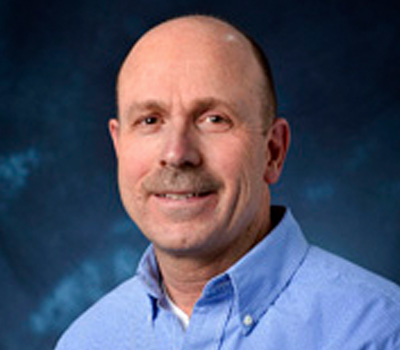Combating the impending epidemic of aging-associated disability and disease
Aging may be the most pressing issue of our time. Advancing age results in physiological dysfunction and increased risk of disability and chronic diseases. In addition, the number of older adults in the United States is projected to double by 2050. Without effective intervention, these events will have potentially catastrophic effects on aging adults, their families, and government entitlement programs. Dr. Douglas Seals and his laboratory at the University of Colorado Boulder are investigating strategies by which we can optimize cardiovascular, metabolic, physical and cognitive function throughout life. These interventions hold the promise of increasing "healthspan"- the period of life in which we retain good health and function, and delaying the age of onset of disability and disease.
- Dr. Seals' current research focuses on discovering the most effective ways to maintain good physiological function and health as we age. This will allow us to remain productive and independent, and preserve our quality of life throughout the aging process.
- To accomplish this goal, Dr. Seals' laboratory conducts research on lifestyle factors such as exercise and healthy diet. Work also is being conducted in the new field of "nutraceutical research". Nutraceuticals are foods or food supplements with naturally occurring ingredients purported to have health benefits. Dr. Seals' research aims to test the most promising nutraceuticals for improving physiological function and healthspan with aging.
- To perform this research, Dr. Seals' laboratory conducts "intervention trials" in which middle-aged and older adults are given the treatment in question or a placebo, in accordance with strict scientific guidelines and best practices. Cardiovascular, metabolic, physical (strength, endurance, balance, etc.) and cognitive functions are assessed before and after treatment to discern possible benefits.
To combat the impending epidemic of aging-associated disability and chronic disorders such as cardiovascular, Alzheimer's and Parkinson's diseases, we must establish effective strategies to preserve physical and cognitive function with aging, and increase overall healthspan. A major challenge to achieving this goal is the ability to make recommendations that are based on quality scientific research ("evidence-based best practices"). What types of exercise and foods are most beneficial? Which of the many advertised nutraceuticals actually improve function or health with aging? Dr. Seals and his laboratory seek to continue to conduct research that will establish the scientific basis for a "blueprint" for enhancing healthspan and promoting healthy aging.
Bio
Dr. Seals is a College Professor of Distinction in the Department of Integrative Physiology at University of Colorado Boulder, and has an adjunct appointment as Professor in the Department of Medicine, Divisions of Cardiology and Geriatric Medicine at the University of Colorado Denver Anschutz Medical Campus.
He received his Ph.D. in applied physiology at the University of Wisconsin-Madison, and performed postdoctoral research training in applied physiology and aging at Washington University School of Medicine in St. Louis.
Dr. Seals has been conducting independent research on healthy aging for over 30 years, and was among the first investigators to study the physiological benefits of lifestyle behaviors such as regular exercise and healthy dietary factors in older adults. His research program has been funded continuously by the U.S. National Institutes of Health since 1986. Dr. Seals has published over 250 articles on his research in high quality scientific journals.
Dr. Seals has received numerous awards from his institution and national organizations including a Citation Award from the American College of Sports Medicine, the Herbert H. deVries Award for Distinguished Research in the Field of Aging, and the CU-Boulder Faculty Assembly Award for Research, Scholarly, and Creative Work. In recognition of the high quality of his research on aging, Dr. Seals was named a Professor of Distinction in the College of Arts and Sciences at CU-Boulder in 2008. He is the recipient of the highly prestigious 10-year MERIT research grant award from the National Institute on Aging, and recently was named the Edward F. Adolph Distinguished Lecturer by the American Physiological Society for his work on the role of lifestyle factors in preserving physiological function and health with aging.
The key findings of Dr. Seals' work on healthy aging include the following:
Regular aerobic exercise improves maximal aerobic capacity (cardio-respiratory fitness), preserves heart function, and prevents the development of glucose and insulin dysfunction (a prediabetic state) with aging;
Weight loss reduces oxidative stress, improves blood pressure and other risk factors for cardiovascular diseases, and restores vascular function in overweight/obese middle-age and older adults;
Reducing sodium intake in the diet dramatically lowers blood pressure and improves vascular function in middle-age and older adults with normal or slightly elevated resting blood pressure;
Improving circulating lipids (cholesterol and triglycerides) via short-term treatment with fenofibrate, a lipid-lowering agent, improves vascular function in middle-age and older adults;
Short-term treatment with anti-inflammatory compounds improves cardiovascular health in middle-age and older adults;
Aerobic exercise protects cardiovascular function from the negative effects of high circulating cholesterol and glucose, and reduces circulating markers of inflammation with aging;
Among older adults, higher circulating vitamin D levels are associated with greater vascular health;
Increasing nitric oxide levels in the body improves vascular, motor and cognitive function with aging;
Older adults who regularly exercise have greater telomere length in their white blood cells, a marker of reduced biological aging.
In the News
Fenofibrate improves vascular endothelial function by reducing oxidative stress while increasing endothelial nitric oxide synthase in healthy normolipidemic older adults
Awards
Edward F. Adolph Distinguished Lecturer
2013 American Physiological Society
Professor of Distinction
2008 College of Arts and Sciences


